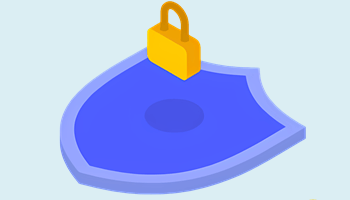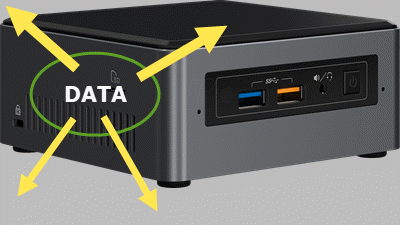All the latest security news, including a massive data breach affecting 100+ million Americans.
Data Leak Affecting 100+ Million U.S. Residents
Cybernews recently reported that its researchers have uncovered a massive data leak involving 106,316,633 Americans and 2.2TB of data. The security researchers identified a company called MC2 Data, which operates a number of public record and background check sites, as the culprit.
MC2 Data and similar companies run public records and background check services. These services gather, compile, and analyze data from a wide range of public sources, including criminal records, employment history, family data, and contact details. They use this information to create comprehensive profiles that employers, landlords, and others rely on for decision-making and risk management.
The leaked personal data is extensive, including dates of birth, email addresses, names, physical addresses, IP addresses, phone numbers, property records and legal records, employment history, encrypted passwords, and even data on the families and relatives of those affected.
Here’s the kicker; as the security researchers discovered, this was no ordinary hack, all this data from MC2 Data was stored online in an unprotected database with no master password. Frightening!
[credit: Cybernews]
Browser Extensions Compromise User Data
Research from Georgia Tech reveals thousands of browser extensions pose significant privacy risks by extracting sensitive user data from web pages. The researchers designed a web framework to test whether extensions automatically extract user data from webpages and used the system to study every functional extension – more than 100,000 – available in the Chrome Web Store
As a result of the study, the researchers discovered that the collection of potentially sensitive and private data by browser extensions is systemic and ubiquitous. They identified more than 3,000 browser extensions that automatically collect user-specific data, affecting tens of millions of users. More than 200 extensions directly took sensitive user data from web pages and uploaded it to servers.
So, while browser extensions can certainly enhance users’ online experiences, it appears that many are in the habit of surreptitiously collecting private data.
[credit: Georgia Tech]
China-Based Hackers Breach U.S. ISPs
MSN has reported that a group of hackers linked to the Chinese government have recently been attacking U.S. Internet service providers in pursuit of sensitive information. The hacking campaign, dubbed Salt Typhoon by investigators, hasn’t previously been publicly disclosed and is the latest in a series of incursions that U.S. investigators have linked to China in recent times.
Investigators are exploring whether the intruders gained access to Cisco Systems routers, core network components that route much of the traffic on the internet. China has made a practice of gaining access to Internet service providers around the world, but if hackers gained access to service providers’ core routers, it would leave them in a powerful position to steal information, redirect Internet traffic, install malicious software, or pivot to new attacks.
In a truly scary comment, Christopher Wray, the Federal Bureau of Investigation’s director, stated that China’s hacking program is larger than that of every other major nation combined.
[credit: MSN]
Kaspersky Forcibly Installs A Replacement Antivirus
Following a universal U.S. ban on Kaspersky Antivirus, customers in the US have found their antivirus software has been replaced without warning or permission with a new solution called UltraAV, according to a report from TechRadar.
Kaspersky confirmed the transition in a post by Vadim M. on the company’s forum, stating, “Kaspersky has partnered with UltraAV to make the transition to their product as seamless as possible“.
Former National Security Agency director of cybersecurity, Rob Joyce, commented on the transition on X (formerly Twitter), saying, “This is why handing root-level access to Kaspersky was a huge risk. Users were migrated – software uninstalled and a totally different product installed automagically. They had total control of your machine”.
In fairness, many antivirus products use root-level access to scan for harmful files, so root-level access in antivirus solutions is not uncommon. Kaspersky’s Vadim M. also claimed that, following the ban, the transition to UltraAV was enforced to ensure that none of Kaspersky’s former users were left unprotected. Which, if true, maybe suggests a somewhat thoughtful motive. If true!
[credit: TechRadar]
Stay safe out there!
—





Hello Jim. As you are aware, I have and continue to use Kaspersky. Canada does not have a ban on this company. I posted my comments on the Forum. As for why and how Kaspersky made this switch, might be a mystery, but I believe it had something to do with the ban. Should they have contacted their clients, were they allowed to contact their clients prior to the change hopefully will be cleared up soon, Mindblower!